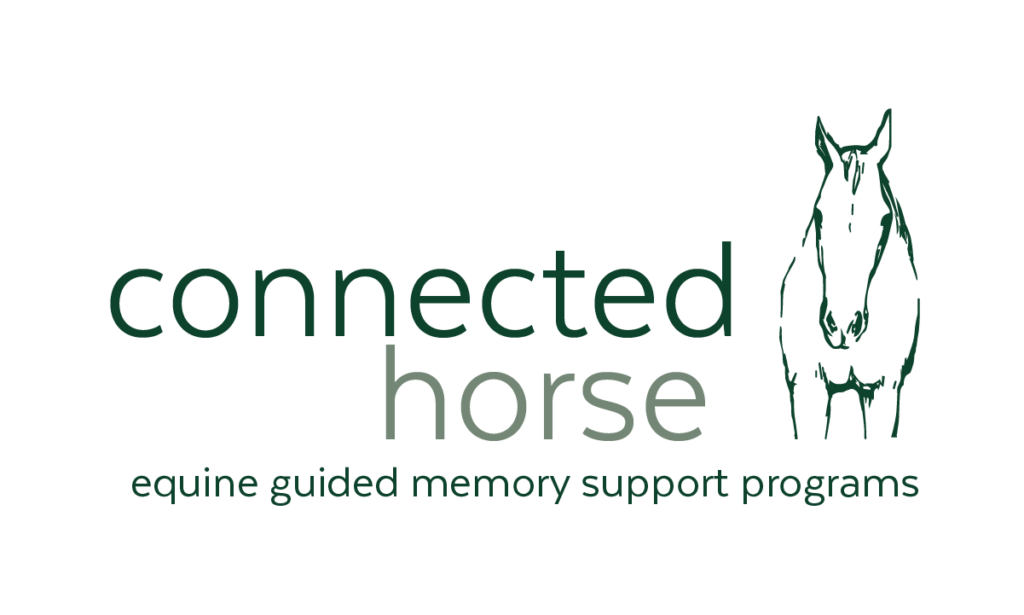
Barn At-Home
Connected Horse
Rocklin, California

Connected Horse’s goal is to use the therapeutic value of equine assisted learning and sensory engagement to support the reduction of isolation and stress, and the stigma associated with Alzheimer’s disease and related dementias for people living with dementia, their family and informal caregivers. Through innovative and research-informed equine-assisted therapy programs, Connected Horse has inspired more than 800+ participants in interpersonal and animal connection, engagement, and emotional healing by delivering in-person workshops and the interactive Barn At-Home activities. The organization also offers training certification to become a Connected Horse facilitator extending the reach of the program beyond California to communities across the US.
In the Connected Horse in-person workshops, trained facilitators guide interactions between these beautiful and gentle horses, family and friend care partners and the person living with dementia as they experience exercises that focus on mindfulness, self-awareness, nonverbal communication, and joy. The Barn At-Home program extends the experience by providing specially curated activity kits containing sensory tools (tactile, aromatherapy, conversation prompts, music, and photo exploration in a virtual barn environment) via home visits, adult day center sessions, senior living communities and interactive Zoom workshops.
A caregiving daughter said, “We learned to relax and focus on what is in the moment. I felt more tuned into myself in a way that I hadn’t been for a while, and I also felt more connected with my mother. I could see that she was happier after the [Connected Horse] workshop.”
Incorporated as a not-for-profit in 2017, Connected Horse grew out of The Equine Guided Support Pilot Study conducted in partnership with UC Davis and Stanford University where findings showed innovative opportunities for stress reduction and social engagement for care partners (CPs) and persons living with dementia (PLWD). A natural outgrowth of the program is the organic growth of an intergenerational volunteer program. It has provided the opportunity for younger volunteers to learn about the aging process and connect with older adults, while the adults enjoy the youthful positive energy and non-judgmental friendship offered by the volunteers.